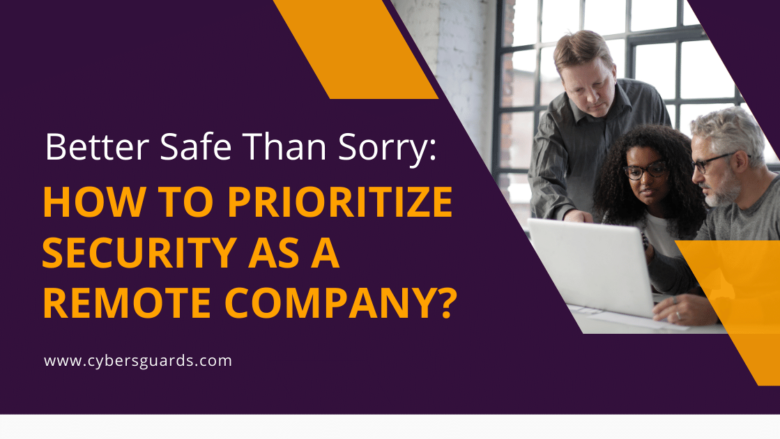Managers and employers realize the benefits that come with a small company. When your employees can roll out of bed and straight into their roles, it requires less micromanaging and costly overhead for leadership.
That said, remote work can cause vulnerabilities for company data. Remote company owners must ensure the security of their clients and company information. Much like a burglary, a cybersecurity threat can completely devastate a company. Here is your guide to prioritizing cybersecurity as a remote-first business.
Don’t forget physical security.
When working remotely, it’s easy to overlook physical security. Remote companies still require physical items and information, and it would be best if you securely stored paperwork and company devices.
It is probably best not to allow sensitive client information to be mailed to employees’ home addresses. A safer idea would be to invest in a virtual office subscription, through which all mail, phone calls, and faxes go to a staffed location and remain safeguarded.
When working in a public area, ensure no sightline to your computer screen. You do not want anyone privy to private information. If employees cannot guarantee that their sessions are entirely free from prying eyes, they should choose another place to complete their work tasks.
Update network security systems
You must protect your virtual office and client data. Your network must have firewalls, antivirus software, and spam blocking features that team members update regularly.
Understand the limitations of your virtual private network
Many people believe that a virtual private network, or VPN, will protect their companies from threats, which is not always the case. Using a VPN allows for an extra layer of protection, but it has its limitations.
VPNs can become overloaded, which can cause your system to slow down, leaving you vulnerable. It is best to use VPN providers with an extensive server network to decrease the chances of overload.
It is also good to change your VPN server location closer to your company’s location. Remain vigilant about who is using your VPN and establish specific uses for your VPN.
Enforce an employee data security policy
Working remotely can sometimes contribute to employee mistakes. Employees can sometimes become relaxed when it comes to safety protocols. It is best to create a data security policy that establishes the company’s expectations regarding security protocols.
The data policy should also clarify the consequences if employees do not follow protocols. Employees should sign the procedure, and owners should monitor for compliance. When employees are not following protocols, a manager should address the employee immediately.
Given that you have decided that a data security policy is an idea that you would like to implement, it is vital that you provide your employees with everything they need to comply with the security protocols you have laid out. Employees must access a secure VPN, password management, and antivirus software.
Tighten identification methods
People choose passwords that are simple for them to remember. Unfortunately, if passcodes are easy to remember, they are easy to guess. Encourage strong passwords and insist that your employees never reuse passwords or variations of an existing password.
It would be best to implement multi-factor authentication for any VPN user, allowing you to ensure that the user’s identification is verified before access. Typical forms of identification are security questions, texted security codes that must be entered, personal access codes, and biometrics.
Discourage the use of personal devices
Many employees have personal devices that they are comfortable with and prefer to work with. It might be best to discourage this practice because some of these devices might not have the most up-to-date antivirus software, or they might not even be password-protected, and this could pose a significant security threat.
Remote companies should supply their employees with the devices they need to succeed in their roles. This equipment would allow the company to have complete control over the machines, and the technology could be updated whenever needed.
Encourage secure internet connections.
Working remotely allows employees the flexibility to work from just about anywhere. Employees must be vigilant when choosing a public Wi-Fi network. If working in a general area is necessary, ensure that your employees understand that they are to use the company’s VPN to provide a secure connection.
Train and monitor employees about security protocols
Employers should prevent security threats by training and monitoring their staff. Employees should know how to identify possible cyber threats and how to react.
Employers should also enforce the data security policies that they have created. Employees that are not complying should be addressed immediately.
Final thoughts
You don’t have to be an IT expert to guarantee security within your remote company. Staying vigilant and incorporating some common-sense approaches can help you and your employees achieve peace of mind while working with sensitive personal data. Prioritizing security will also help gain and keep your clients’ trust.










FIND US ON SOCIALS